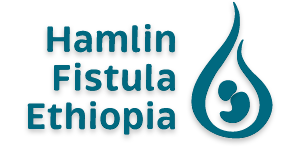About Us

Hamlin Fistula Ethiopia is dedicated to the treatment and prevention of childbirth injuries called obstetric fistulas. The organisation was founded by Dr Reg Hamlin OBE and Dr Catherine Hamlin AC in 1974. They were in Ethiopia to train midwives when they discovered the terrible plight of the fistula patients.
“Mourning the stillbirth of their only child, incontinent of urine, ashamed of their offensiveness, often spurned by their husbands, homeless, unemployable, except in the fields, they endure, they exist, without friends and without hope. They bear their sorrows in silent shame. Their miseries, untreated are utter, lonely and lifelong.”
Hamlin Fistula Ethiopia directs the work of the Addis Ababa Fistula Hospital, its five regional hospitals, the Hamlin College of Midwives and Desta Mender, a farm and training centre for long term patients.
Hamlin Fistula Ethiopia is a world-class centre of excellence for treating obstetric fistula patients and training obstetricians to specialise in this surgery. Rehabilitation programs assist former patients to reintegrate to village life. The organisation also has a preventative strategy that aims to eradicate obstetric fistula from Ethiopia by providing trained midwives in the rural regions of the country.
Hamlin Fistula Ethiopia employs gardeners, drivers, cooks, cleaners, seamstresses, teachers and guards as well as administration and office personnel and medical staff including pathologists, physiotherapists, nurses, nurses aids (many of which are former fistula patients) and of course world-class fistula surgeons. Some members of staff have been with the organisation since the Hamlin’s arrival in Ethiopia in 1959.
The Ethiopian staff are the backbone of Hamlin Fistula Ethiopia. There are over 500 staff across various sites: the main hospital in Addis Ababa, our five regional hospitals strategically located in the provinces, Desta Mender and the Hamlin College of Midwives.
Hamlin Fistula Ethiopia provides stable employment for many local Ethiopians while also providing much-needed health services for the women and girls of Ethiopia. Hamlin Fistula Ethiopia’s work on the ground in Ethiopia is sustainable and enriching – run by Ethiopians, for Ethiopians. The legacy of Drs. Reginald and Catherine Hamlin has a strong and vibrant future.
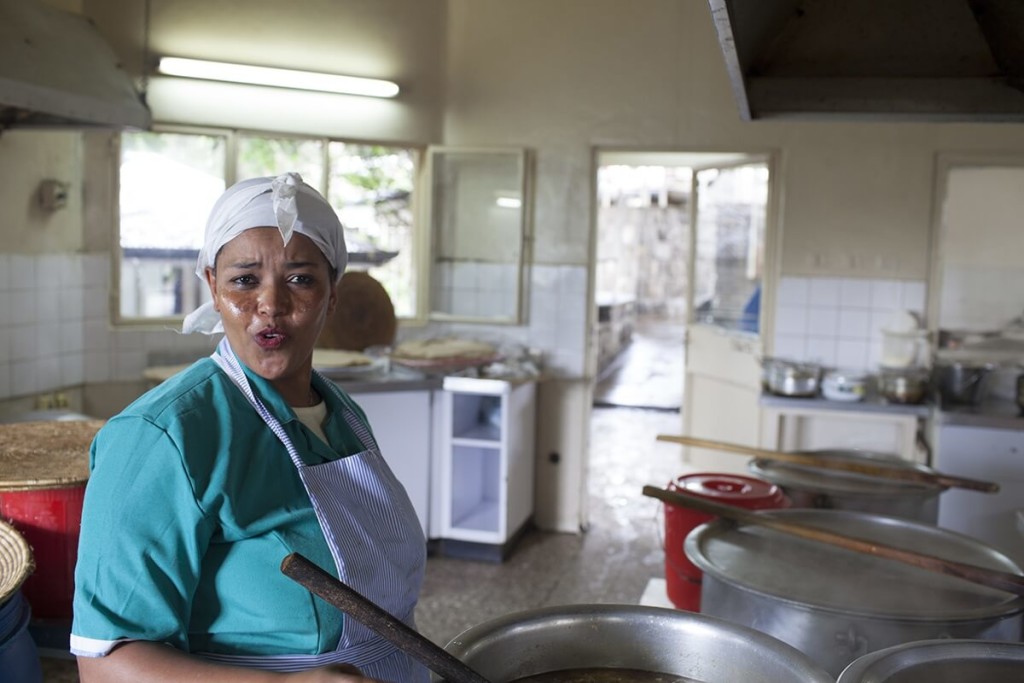
About Ethiopia
Whilst Ethiopia is one of the fastest growing economies in Africa and is home to the African Union, it carries an enormous population of people living in poverty, struggling with a lack of health services and infrastructure.
For a population of over 90 million, Ethiopia has less than 250 obstetricians / gynecologists. Coverage across the country is uneven with most working in Addis Ababa and almost none in Afar, Gambella or Benshangoul-Gumuz regions. In the Amhara region, home to well over 20 million people, there are only three hospitals equipped to perform a caesarean section.
There are less than 7,000 trained midwives working in Ethiopia. This is a childbearing population ratio of approximately 1:14,000, well below the World Health Organisation’s recommendation of 1:5,000. Less than 15% of Ethiopian women receive any form of care from a skilled childbirth attendant. This lack of health professionals and services has a direct impact on the women of Ethiopia with approximately 9,000 women dying in obstructed labour each year and another 9,000 surviving but with an obstetric fistula.
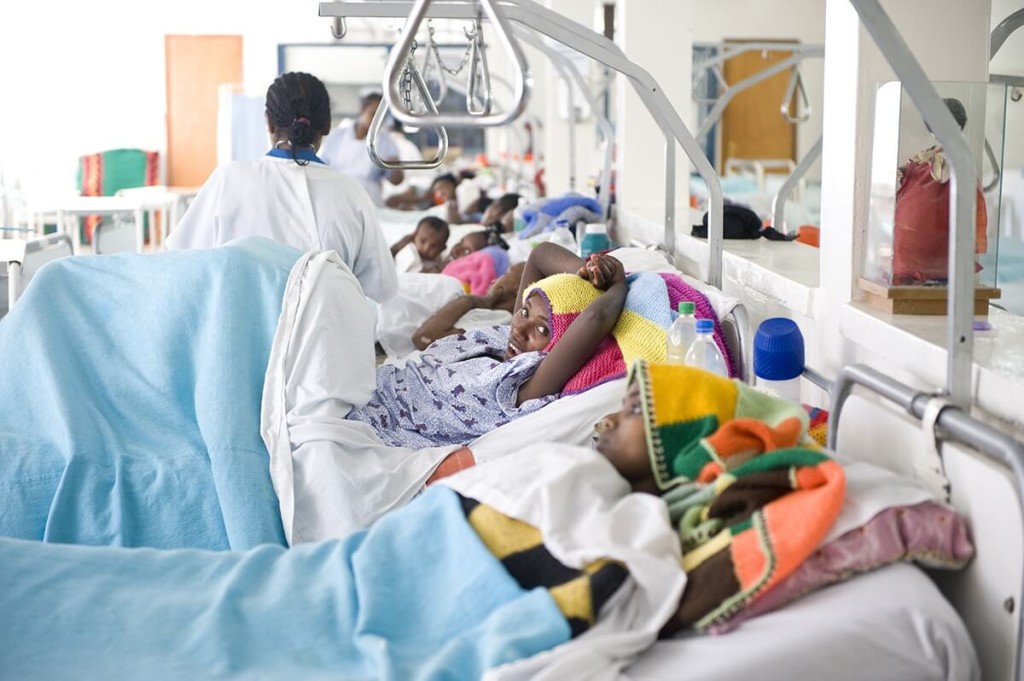
Impact of obstetric fistulas
Obstetric fistula (or vaginal fistula) is a medical condition in which a fistula (hole) develops between the rectum and vagina (rectovaginal fistula) or between the bladder and vagina (vesicovaginal fistula). This occurs following prolonged obstructed childbirth, when adequate health and medical care has not been available.
Symptoms of an obstetric fistula are urinary and/or fecal incontinence that can lead to severe infections and ulcerations of the vaginal tract. Some patients suffer from paralysis caused by nerve damage. Sufferers of obstetric fistula are often subject to severe social stigma due to their smell, perceptions of uncleanliness, a mistaken assumption of venereal disease and, in some cases, infertility. Nearly all patients at the Addis Ababa Fistula Hospital report psychological issues associated with their condition. Many marriages do not survive, simply unable to cope with the ongoing physical and emotional health issues.
Obstetric fistula patients report that, on average, the nearest health facility is two days walk away from their homes. This trek is often done alone. Many women will stuff their clothes with rags to prevent leakage caused by the fistula. All of the women risk ridicule and humiliation on their journey to be cured.
Ethiopian women are actively involved in all aspects of their society’s life. Women are both producers and procreators and they are also active participants in the social, political, and cultural activities of their communities. Obstetric fistula not only disables the woman in so many ways, the entire village feels the effects. Women with obstetric fistula are often outcast and therefore unproductive, their family and community suffer. By treating an obstetric fistula patient, Hamlin Fistula Ethiopia is helping to rehabilitate communities as well.
Prevention of obstetric fistula
To prevent obstetric fistula, women need access to good medical care during labour. If necessary, they need emergency obstetric care as well as quick and safe caesarean sections for those in obstructed labour. Pregnant women also need support from trained health care professionals throughout pregnancy and access to family planning.
The number one way to prevent obstetric fistula is to provide the women and girls of Ethiopia with emergency obstetric services. There are only 156 hospitals in Ethiopia. Most of the hospitals are in cities and far from the rural population. Midwifery services are also essential to a healthy and safe pregnancy and childbirth. Hamlin Fistula Ethiopia supports the notion that many maternal and newborn deaths can be prevented if competent midwives assist women before, during and after childbirth and are able to refer them to emergency obstetric care when severe complications arise.
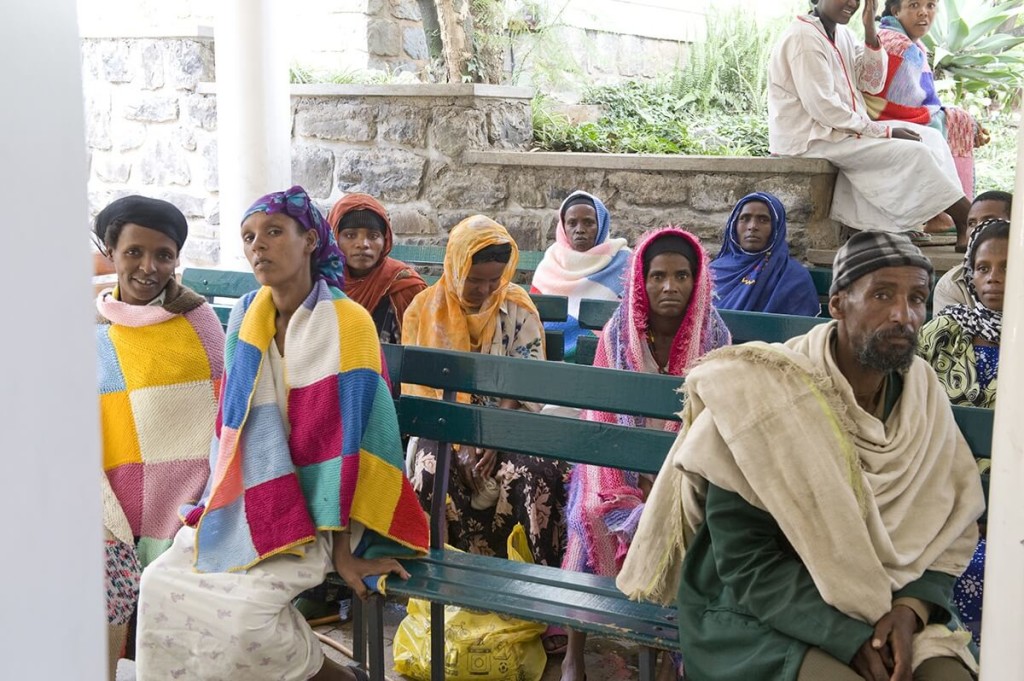
The Addis Ababa Fistula Hospital
The main hospital campus is in the capital of Ethiopia, Addis Ababa. Built in 1974, the Addis Ababa Fistula Hospital has three wards, a large operating theatre accommodating four surgical teams, specialist clinics including a physiotherapy department, urodynamic and stoma clinic, pharmacy and pathology services. The hospital has a 120-bed capacity but at times the number of beds might increase to accommodate need.
Hamlin Fistula Regional Hospitals
Due to a lack of transportation infrastructure and difficult geography, many patients cannot access the capital for treatment at the Addis Ababa Fistula Hospital. For some patients even the cost of a bus fare to Addis is just not possible for their family.
For this reason, in 2003, Hamlin Fistula Ethiopia began an ambitious plan to build five regional Hamlin Fistula Centres. These capital works have been funded by international donors and have enabled many more patients to be treated in the provinces where health services are very limited. There are Hamlin Fistula Centres in Mekele and Bahir Dar in the north, Yirgalem in the south, Harar in the east and Metu in the southwest. Each Hamlin Fistula Centre is built inside a government general hospital, which ensures resources are used effectively and wisely.
Bahir Dar Hamlin Fistula Centre
The Bahir Dar Hamlin Fistula Centre is located in Bahir Dar, the capital of the Amhar Region, 540 km north-west of Addis Ababa. Bahir Dar is situated on the southern tip of Lake Tana, the source of the Blue Nile River. The region has a population of more than 20 million with few health facilities. The Bahir Dar Hamlin Fistula Centre was opened in 2007 and since 2009 has been managed by Dr. Bitew Abebe (who was trained by Dr Hamlin) and a team of skilled nurses and nurse aides. Many of the staff are former patients. The head nurse, Sr. Ayalnesh and operating theatre nurse, Sr. Abaynesh, maintain high treatment standards at the centre to ensure successful outcomes for patients. The centre also employs several teachers to provide health and literacy education and handicrafts training to the patients.
Mekele Hamlin Fistula Centre
The Mekele Hamlin Fistula Centre is located in Mekele, the capital of the National Regional State of Tigray, situated in the northernmost part of Ethiopia, 760km from Addis Ababa. Opened in February 2006, this was the second of the planned five mini-hospitals to be completed. The centre will not only treat patients in the Tigray region but also patients from the Afar and Amhara regions. Dr Melaku Abreha undertook intensive training in fistula surgery at the Addis Ababa Fistula Hospital and is now head surgeon of the centre. Together with the Regional Health Bureau, Dr Melaku Abreha is establishing a range of programs to train doctors and health officers in emergency obstetric care. Head nurse, Sr. Azeb and operating theatre nurse Sr. Hiwot, oversee the team of nurse-aides and ensure that a high level of care for the patients is maintained at all times. The Mekele Hamlin Fistula Centre has a dedicated health officer whose primary responsibility is to find hidden fistula patients in the region and to promote health education to prevent fistulas occurring. The centre works with the regional health bureau, international and local NGOs in the prevention of obstetric fistulas, averting maternal morbidities and reducing maternal mortality.
Yirgalem Hamlin Fistula Centre
Yirgalem Hamlin Fistula Centre is situated within the grounds of the regional Yirgalem hospital. Yirgalem is located south of Addis Ababa in the Sidoma zone and has a population of over 14 million. From Addis Ababa the journey takes about five hours by car on a narrow road that traverses the Great Rift Valley. The centre is managed by public health professional Mr. Amare Desta. At present, doctors from Addis Ababa travel to the centre to perform surgery on patients. Two nursing sisters and ten nurses’ aides, trained at the Addis Ababa Fistula Hospital, make up the team at the Yirgalem Hamlin Fistula Centre. Head nurse Sr. Welela and operating theatre nurse Sr. Sara have an unwavering commitment to helping impoverished women in the area.
Harar Hamlin Fistula Centre
Harar Hamlin Fistula Centre is the fourth centre to reach completion and was officially opened by Dr Catherine Hamlin in 2008. Strategically placed in the East of the country in Harar, the centre will treat both Ethiopian and Somalian women due to its close proximity to the Somali border. The centre is located on the grounds of the Hiwot Fana Government Hospital on land donated by the Regional Government. Mr. Sileshi Ashine manages the centre and surgery is performed by Dr Amir. Head nurse Sr. Kibebe and operating theatre nurse Sr. Tinsae ensure that high quality patient care is provided and maintained at the centre. A Public Health Officer has been hired to raise awareness of fistula in the area.
Metu Hamlin Fistula Centre
The Metu Hamlin Fistula Centre is located in Metu, the capital of the Illubabora Zone, in the Oromiya Region. Metu is situated along the Sor River, 600 km south-west of Addis Ababa. The region has a population of more than 28 million with few health facilities. Mr. Tibebu Abate manages the centre whilst visiting doctors from Addis Ababa perform surgery. The centre will soon have its’ own surgeon Dr Zahara who is currently completing training at the Addis Ababa Fistula Hospital. Head nurse, Sr. Aregash and operating theatre nurse Mr. Wendimagegn, maintain high treatment standards to ensure successful outcomes for the patients. The centre also employs several teachers to provide health and literacy education and handicrafts training to the patients.
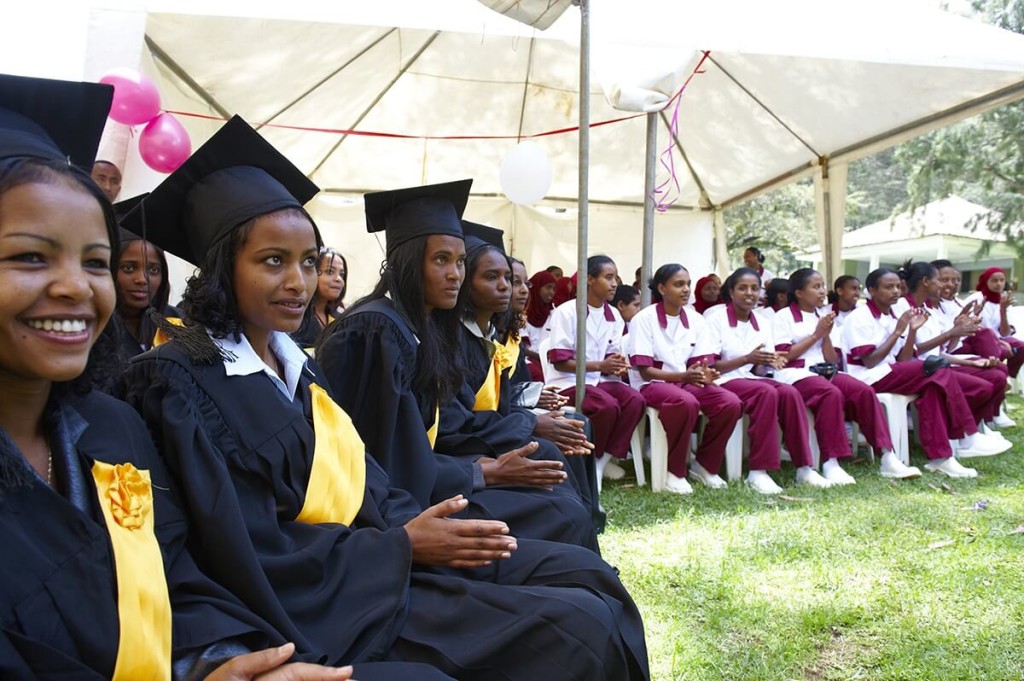
Hamlin College of Midwives
The Hamlins’ original plan for working in Ethiopia was to train midwives so that all women would have access to a clean, safe birth. With a population over 90 million there are only about 7,000 trained midwives in Ethiopia. Each year approximately 9,000 Ethiopian women die in obstructed labour and another 9,000 survive but with a debilitating fistula.
In 2007, almost 50 years later, Dr Hamlin returned to her original vision through the development of the Hamlin College of Midwives. Local Ethiopian midwives are recruited from high school graduates in the provinces who are trained in a four-year degree with a vigorous curriculum of theory and practice. They are then deployed back to the provinces to work alongside the regional fistula centres.
In 2010, the first 11 graduates were deployed in health centres in areas close to the fistula regional centres and since then there have been no maternal deaths in those districts. 87 students are currently studying and more than 105 midwives have already graduated. Hamlin midwives are working across 34 partner health centres and in Hamlin hospitals. In 2015 alone, Hamlin midwives attended more than 10,000 births, provided antenatal care for more than 18,000 women and conducted more than 5,000 postnatal care visits.
The Hamlin College of Midwives is an important step towards a sustainable prevention strategy for the women and girls of Ethiopia to avoid obstetric fistula in the first place.
Desta Mender
Desta Mender is a farm and training facility, built on land beside a mountain on the outskirts of Addis Ababa, given to Hamlin Fistula Ethiopia by the Ethiopian government. It has market gardens, an orchard and dairy farm as well as the Juniper Café where residents learn hospitality skills.
Meaning ‘Joy Village’, Desta Mender is where long-term patients live for a period of time. Here, they live close to one of our hospitals whilst gaining independence and learning new skills for when they return to village life. If a patient cannot be cured and has to have a stoma, she needs ongoing access to clean equipment and ongoing medical care.

